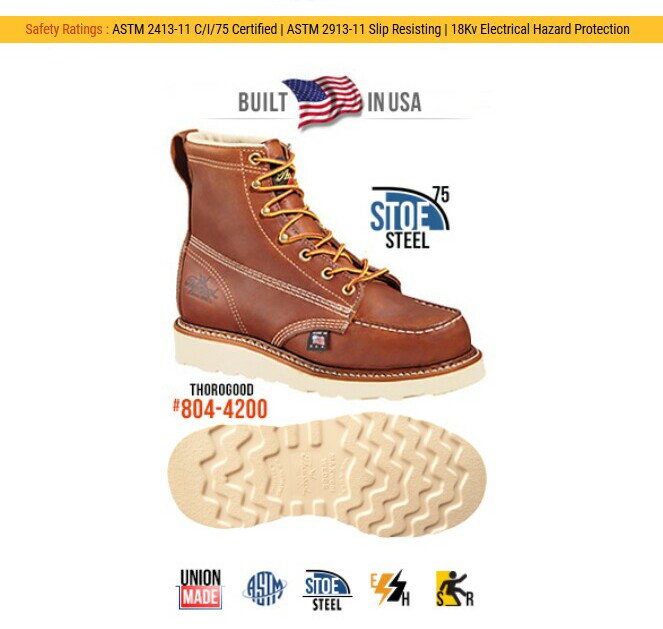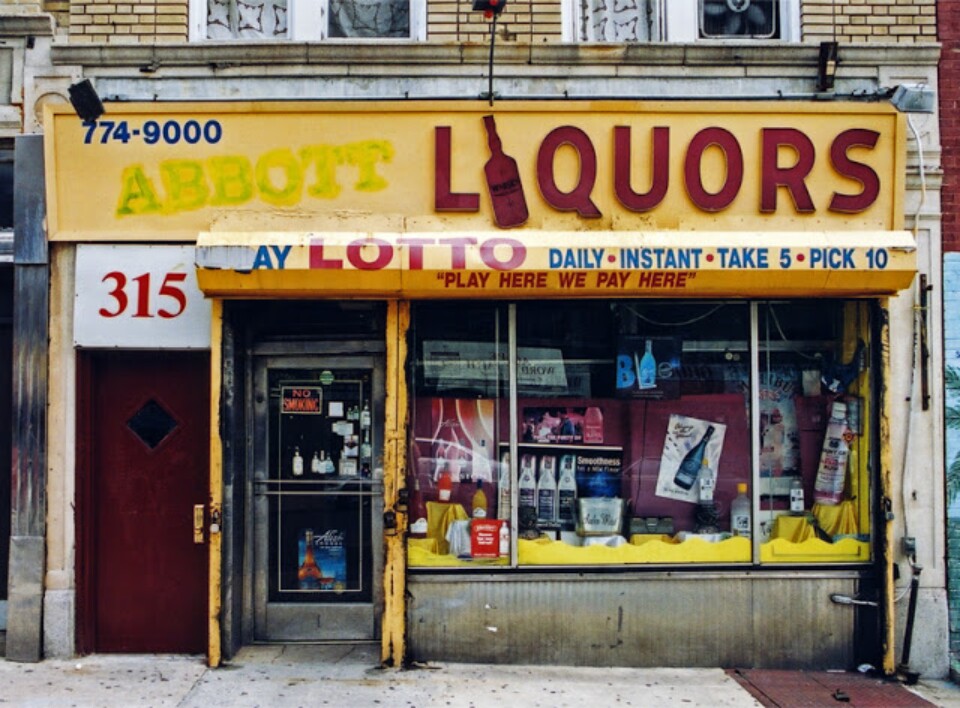“According to the Bureau of Labor Statistics, ironworking is the 7th most dangerous job there is. Exposing individuals to unique workplace hazards and dangers, working as an ironworker requires special protection and gear to guarantee an injury-free shift. So, whether you’re just starting out on your new ironworking job or if you’ve been navigating those steep steel structures for a while now, an optimal work outfit is something you shouldn’t take for granted.” – advice verbatim, courtesy of purposefulfootwear.com

“Some folks calls it a sling blade, I call it a kaiser blade.” Some folks call them ironworker boots, my family calls them bridge shoes. They are a must to get work as an apprentice in the Ironworkers Union. I’ve quit my job at Kingsway due to some bad management choices, and have resolved to stay out of the supermarket business.
Similar to the way my brother got a foothold as a lowly apprentice oiler in the Operating Engineers Union, then over the years advanced to tower-crane operator, my mother has asked a favor from one of her business connections at the Newark Athletic Club, and now I have my foot in the door to an apprenticeship in the Ironworkers Union.
Ironworkers looking for work come to the union hiring hall to “shape up”, that is, to register as available to go to work. Once the union sends them out on a job, they usually stay on that job until the project is done. Depending on experience and skill, an ironworker might install the fencing around a parking lot, or link the steel framework of a bridge or high-rise.
My brother tells me that as a would-be apprentice it’s a good idea to show up at the hall at 6:30 to register, hang around and be seen. He also says, “If they ask you if you’re okay with heights, tell them the truth.” I nod, but later I wonder, What is the truth? I think I’m okay with heights, but do I really know? I climbed that rope in school and wrote my name on the gymnasium ceiling, does that count? I’ve climbed a few ladders and trees, and tarred the railing-free roof of a six-story apartment house, what about those?
At the hall, I hand over a piece of paper introducing me, if that’s the correct word, as a candidate for apprenticeship, and I sign the job register. Seeing that many guys are here already, most looking like they’re settled in for a long wait with coffee and newspapers, I hope there are enough jobs to go around. It turns out there are not; only two guys get sent out today, to a short-term job installing fencing.
I go to the hall every morning for two weeks, but nothing happens for me, or for most of the other guys there. “The nation is in an economic lull”, somebody on TV says, so bad timing on my part. I put my bridge shoes away in case I get a shot at another semi-dangerous, high-paying job one day. Still not knowing for sure if I’m okay with heights, I turn to the classifieds. Here’s one, “Lunch Truck”.
At the office/assembly line/factory of the lunch truck company, I am given a short tour. On site, they brew gallons of coffee, make and wrap tasty sandwiches, and package Danish pastry and other single-serving sweets. Everything is scrupulously clean, and the ladies wear hairnets to keep it that way. It’s about one o’clock in the afternoon, and there’s just enough time to ride along on one truck’s last circuit of the day. It’s a standard sort of panel truck, with two swing-out back doors to serve customers when they walk up. Ten-gallon coffee jugs are attached to the inside walls, along with racks of edibles.
Our first stop is a small electronics-assembly plant in Short Hills. The ladies here also sport hairnets, but most of these ladies are young, in their twenties or not much beyond. They’ve apparently been looking for a distraction, they seem very excited about the lunch truck’s arrival. Some of them tuck their hairnets into a pocket before coming outside. They are all smiles and giggles, and a bit flirty when buying their coffee. When we get back to the office I am told if I want the job it’s mine, and to come in at six in the morning tomorrow.
For the next morning’s training run I go out on a different truck with a different driver. This is not the suburban, Short Hills lunch truck route; it’s an industrial area of Newark. Our first stop is at a loading dock on McCarter Highway. We arrive, the customers line up, and we’re in business.
The plastic coffee lids are thin and shallow; they require careful fitting to the cardboard cup. I’m a bit nervous, and after serving a few customers, when I push the lid down over one cup to get a tight seal, I press too hard. The lid gives way, and my thumb goes into the coffee. My customer asks, “Hey, motherfucker, you washing your hands in my coffee?” I don’t know what to do except say I’m sorry and that it’s my first day on the job, and I pick up a new lid and close the cup properly. Of course the right thing to do would have been to start all over with a fresh, unthumbed cup of coffee, but that doesn’t occur to me. It doesn’t occur to my customer either – apparently satisfied by the apology and explanation, he takes his coffee, pays and leaves. This is the only specific event I remember from my first full day on the lunch truck. The rest of the day goes better, but food service is not for me.
The next morning the phone rings at about 6:15 and my mother answers. She wakes me up and tells me the lunch truck outfit is on the phone, they are wondering where I am. Here I pull a dirty trick; instead of coming to the phone, I tell her to tell them I’m not coming in any more. She does, but she is not happy. Remember, this is the woman who made me write a letter of resignation when I quit a job delivering newspapers.
Still trying to avoid going back into the supermarkets, I take a clerk job at a small liquor store near the Lido Theater in Orange. It pays above minimum wage, so that’s something. I get to carry cases of wine, soda and beer upstairs from the cellar, which smells of breakage that happened before I was born. Part of the job is making deliveries using the owner’s personal car, a new and peppy Oldsmobile. There’s more or less a test; he goes out with me on the first two deliveries to make sure I’m a safe and responsible driver. He doesn’t seem to worry about the car after that. I make sure to give it some exercise whenever I can.

My boss is impressed – I can pull four soda bottles out of their shipping case and put them on the cooler shelf in one motion. Who said setting up bowling pins was not a transferable skill?
I sometimes get tips, but that benefit is more theoretical than real – I deliver mostly to sad drunks in rundown apartment buildings; my clientele need that tip money for their next bottle.
Between the dank cellar and the sad apartments, I decide I don’t want this job anymore, and give my notice. I need some fresh air. What about the army? I hear you can retire with a pension after twenty years.
